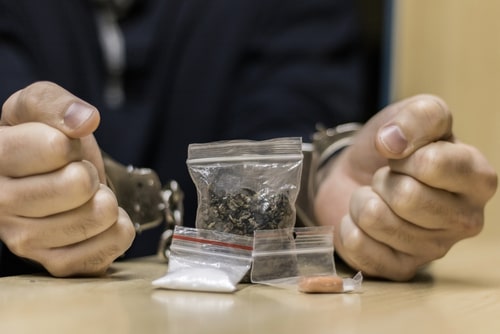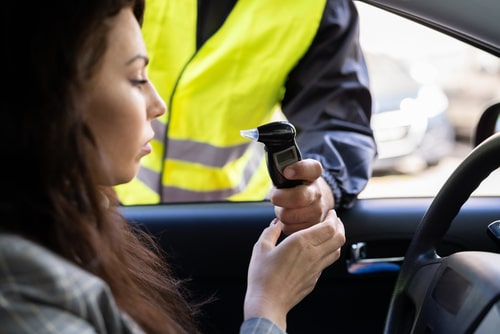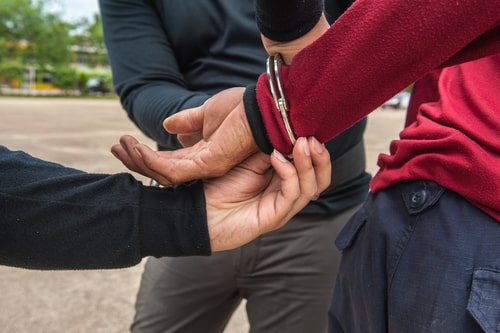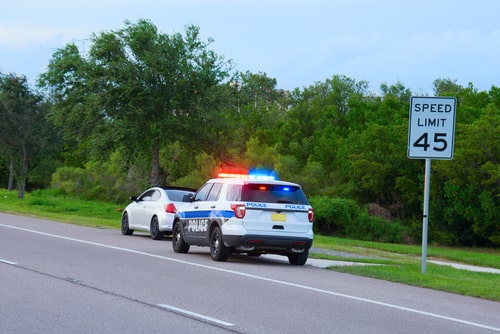Recent Blog Posts
How is Intent to Distribute Proven in Texas?
 In May 2024, a Colorado man was arrested in Alpine, TX by Homeland Security agents for allegedly possessing fentanyl with the intent to distribute. The indictment stated that the man allegedly conspired with others to distribute a controlled substance and that the fentanyl distribution allegedly resulted in the death of an Alpine man. The case is being heard in a federal Denver court.
In May 2024, a Colorado man was arrested in Alpine, TX by Homeland Security agents for allegedly possessing fentanyl with the intent to distribute. The indictment stated that the man allegedly conspired with others to distribute a controlled substance and that the fentanyl distribution allegedly resulted in the death of an Alpine man. The case is being heard in a federal Denver court.
Many people are confused about what distinguishes possession of a controlled substance from possession with intent to distribute. Under Section 481.112, the offense of intent to distribute can be charged when the amount of the drug possessed is too large for only personal use. Other indications of intent to deliver include the presence of packaging materials, weapons, scales, large amounts of cash, texts or phone calls from customers, and drug paraphernalia.
Is “Do Not Blow” Outdated Advice in Texas?
 Since a DWI conviction can have far-reaching effects on your future, you must know what to do if pulled over. Virtually anyone who has been to a bar or nightclub in Texas has seen the phrase “Do Not Blow!” prominently displayed. You may not have thought much about it until you are asked to perform a breathalyzer test.
Since a DWI conviction can have far-reaching effects on your future, you must know what to do if pulled over. Virtually anyone who has been to a bar or nightclub in Texas has seen the phrase “Do Not Blow!” prominently displayed. You may not have thought much about it until you are asked to perform a breathalyzer test.
It is true that many attorneys once advised their clients not to submit to a breathalyzer test. After all, why provide evidence against yourself? Now, if you refuse to provide a sample in Tarrant County, the police will most likely obtain a search warrant and take your blood. In fact, some police departments no longer ask for a breath test, they ask only for blood. Whether you agree to a breathalyzer test or not, if you have been charged with a Texas DWI you need a highly skilled lawyer advocating on your behalf.
How to Prove You Are Innocent After an Assault Charge in Texas
 Being charged with assault, especially in a family violence situation, can be a life-altering experience. Even if you are innocent, the accusation alone can have severe consequences on your personal and professional life. In Texas, a misdemeanor assault conviction can result in fines, jail time, and a criminal record that may haunt you for years to come. If you find yourself facing an assault charge, you should take proactive steps with a Texas lawyer to prove you are innocent.
Being charged with assault, especially in a family violence situation, can be a life-altering experience. Even if you are innocent, the accusation alone can have severe consequences on your personal and professional life. In Texas, a misdemeanor assault conviction can result in fines, jail time, and a criminal record that may haunt you for years to come. If you find yourself facing an assault charge, you should take proactive steps with a Texas lawyer to prove you are innocent.
Make Sure You Understand the Elements of Assault in Texas
To effectively defend yourself against an assault charge, you must first understand what constitutes assault under Texas law. In general, assault occurs when a person intentionally, knowingly, or recklessly causes bodily injury to another, threatens another with imminent bodily injury, or causes physical contact with another in an offensive or provocative manner. In family violence cases, the alleged victim is a family member, household member, or someone with whom you have a dating relationship. Familiarizing yourself with these legal definitions will help you identify the specific elements the prosecution must prove to secure a conviction.
How to Legally Handle Allegations of Internet Crimes
 If you find yourself facing allegations of an internet crime, it is normal to feel uncertain about what to do next. The legal system can be intimidating, especially when your future is on the line. However, remember that you have rights and that there are steps you can take to protect yourself legally. A Texas lawyer can provide you with the steps to follow so you can handle these allegations.
If you find yourself facing allegations of an internet crime, it is normal to feel uncertain about what to do next. The legal system can be intimidating, especially when your future is on the line. However, remember that you have rights and that there are steps you can take to protect yourself legally. A Texas lawyer can provide you with the steps to follow so you can handle these allegations.
First, What Should You Know About Internet Crimes in Texas?
Under Texas law, internet crimes cover a wide range of offenses, including online solicitation of a minor, possession or distribution of child pornography, identity theft, and computer hacking. Law enforcement and prosecutors take these crimes very seriously, and they carry severe penalties, including hefty fines and lengthy prison sentences.
Secure Legal Representation Immediately
If you are accused of an internet crime, the first and most important step is to seek the assistance of an attorney who specializes in internet crimes. Do not attempt to handle the situation alone or discuss the allegations with anyone other than your attorney. Your lawyer will protect your rights, advise you on the best course of action, and develop a strong defense strategy specific to your case.
How to Handle a Resisting Arrest Charge in Texas
 If you have been charged with resisting arrest, you are likely feeling stressed and uncertain about what to do next. Facing a charge for resisting arrest is a serious offense that can result in jail time, hefty fines, and can remain permanently on your criminal record. However, there are steps you can take to protect your rights and build a strong defense. A Texas lawyer can take an in-depth look at your situation and provide guidance on the next appropriate steps.
If you have been charged with resisting arrest, you are likely feeling stressed and uncertain about what to do next. Facing a charge for resisting arrest is a serious offense that can result in jail time, hefty fines, and can remain permanently on your criminal record. However, there are steps you can take to protect your rights and build a strong defense. A Texas lawyer can take an in-depth look at your situation and provide guidance on the next appropriate steps.
What is a Resisting Arrest Charge in Texas?
Under Texas Penal Code Section 38.03, a person commits the offense of resisting arrest if there is intention to prevent or obstruct a law enforcement officer from effecting an arrest, search, or transportation by using force against the officer. This includes actions such as pulling away from an officer’s grasp, struggling to break free, or physically fighting back against the officer.
The Legalities of CBD, THC, and Hemp Products in Texas
 As the popularity of CBD, THC, and hemp products continues to rise, it is crucial to understand the legal implications surrounding these substances. It is beneficial to know what you can and cannot do, and how a Texas lawyer can help if you get charged with a THC-related charge.
As the popularity of CBD, THC, and hemp products continues to rise, it is crucial to understand the legal implications surrounding these substances. It is beneficial to know what you can and cannot do, and how a Texas lawyer can help if you get charged with a THC-related charge.
Hemp and CBD Legalization
In 2019, Texas took a significant step by legalizing hemp, while marijuana remains illegal. CBD products are now legal in Texas, provided they comply with state and federal regulations governing their manufacture and sale. CBD, or cannabidiol, is a non-psychoactive compound found in the Cannabis sativa L. plant. Unlike tetrahydrocannabinol (THC), which is the mind-altering compound in marijuana, CBD does not cause a “high”. Businesses can sell CBD products throughout Texas as long as the THC concentration is below 0.3 percent.
Understanding Your Rights During a Police Stop in Texas
 Getting pulled over by the police can be a nerve-wracking experience. However, knowing your rights during a traffic stop in Texas can help ease anxiety and ensure you protect yourself legally. A Texas lawyer can help you determine if you may have potential for a case, depending on how the situation occurred.
Getting pulled over by the police can be a nerve-wracking experience. However, knowing your rights during a traffic stop in Texas can help ease anxiety and ensure you protect yourself legally. A Texas lawyer can help you determine if you may have potential for a case, depending on how the situation occurred.
Remaining Calm and Compliant
When those flashing lights appear in your rearview mirror, take a deep breath and safely pull over to the right side of the road. Turn off the engine, roll down your window, and keep your hands visible on the steering wheel. Remaining calm and compliant is crucial, even if you believe the officer is mistaken.
Identifying Yourself
In Texas, you must provide your name, current address, and date of birth to an officer upon request. You must also present a valid driver’s license and proof of insurance. However, you do not have to answer any other questions beyond establishing your identity.
What to Do When You Are Facing a Shoplifting Charge in Texas
 If you are facing a shoplifting charge, it can be overwhelming. This might be due to a one-time mistake or a misunderstanding. It is important to know your rights and what to expect in the legal process. A Texas attorney can walk you through what you need to do if you are charged with shoplifting.
If you are facing a shoplifting charge, it can be overwhelming. This might be due to a one-time mistake or a misunderstanding. It is important to know your rights and what to expect in the legal process. A Texas attorney can walk you through what you need to do if you are charged with shoplifting.
Understanding the Severity of the Charge
In Texas, shoplifting falls under the broader category of theft. The severity of the charge depends on the value of the stolen property:
-
Class C Misdemeanor: Property valued at less than $100
-
Class B Misdemeanor: Property valued between $100 and $750
-
Class A Misdemeanor: Property valued between $750 and $2,500
Alternative Sentencing Options for Felony DWI Offenders
 When facing criminal charges related to DWI, most people wonder whether going to jail may be in the cards for them. However, alternative sentencing options may sometimes be available to DWI offenders. These options aim to provide rehabilitation and address the underlying issues that contribute to DWI offenses
When facing criminal charges related to DWI, most people wonder whether going to jail may be in the cards for them. However, alternative sentencing options may sometimes be available to DWI offenders. These options aim to provide rehabilitation and address the underlying issues that contribute to DWI offenses
If you or someone you love is facing DWI charges, contact an experienced and trusted lawyer to learn your options while fighting these serious charges
Felony Alcohol Intervention Program (FAIP)
The Felony Alcohol Intervention Program (FAIP) in Tarrant County, Texas, is a post-adjudication program specifically designed for DWI offenders with prior DWI convictions. FAIP aims to address the underlying issues of alcohol addiction and reduce the likelihood of future offenses
Legal Implications and Defense Strategies for a Third DWI
 Over the weekend in Texas, an untold number of drivers were pulled over. Many were pulled over for blown taillights, and others for forgetting to turn on their blinker. Others, however, were pulled over for a far more insidious reason: driving while intoxicated (DWI). While being pulled over for your first DWI is bad enough, getting pulled over for a second or third DWI is even worse. If you are currently facing charges related to your second or third DWI, you need to act swiftly to ensure that you, from here on out, make decisions that support your best interests. In this case, hiring a knowledgeable and aggressive lawyer is absolutely in your best interest.
Over the weekend in Texas, an untold number of drivers were pulled over. Many were pulled over for blown taillights, and others for forgetting to turn on their blinker. Others, however, were pulled over for a far more insidious reason: driving while intoxicated (DWI). While being pulled over for your first DWI is bad enough, getting pulled over for a second or third DWI is even worse. If you are currently facing charges related to your second or third DWI, you need to act swiftly to ensure that you, from here on out, make decisions that support your best interests. In this case, hiring a knowledgeable and aggressive lawyer is absolutely in your best interest.
Texas DWI Laws
In Texas, the law prohibits people from operating a motor vehicle while intoxicated by alcohol or drugs. The legal blood alcohol concentration (BAC) limit is 0.08 percent for those aged 21 and over. Also, remember that even if you blow below the legal threshold of 0.08 percent, you can still face DWI charges. If the police officer has reason to believe that whatever amount of alcohol you consumed is affecting your ability to drive, you can be charged for DWI. Moreover, even if you blow 0.00 percent but are under the influence of something like a prescription medication,

 817-222-0624
817-222-0624







